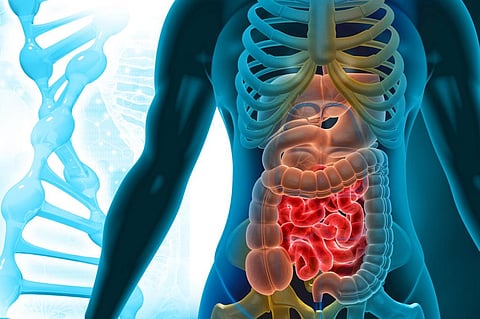

Changes in diet, lifestyle and environment are likely driving an increase in global cancer cases among adults under 50, stated a new study published in the British Medical Journal (BMJ).
Between 1990 and 2019, global early-onset cancer cases shot up by 79.1 per cent and deaths rose by 27.7 per cent, the paper found.
“Dietary risk factors such as foods high in red meat, low in fruits, high in sodium and low in milk, alcohol consumption and tobacco use are the main risk factors underlying early-onset cancers,” the researchers wrote in their study.
Cancer, they added, is generally more prevalent in adults over 50 years. However, the incidence of early-onset cancer has increased worldwide.
The rising trend of early-onset cancer is more distressing because it has significant personal and societal consequences. This, along with the adverse impacts of some corresponding cancer treatments, may lead to additional health issues, increasing the disease burden.
Due to a paucity of data on global trends in early-onset cancer cases, the team analysed data from the Global Burden of Disease 2019 study for 29 cancers in 204 countries and regions.
They zoomed in on specifics such as the number of new cases, deaths, health consequences (disability-adjusted life years or DALYs) and contributory risk factors for adults aged between 14 and 49 from 1990 to 2019.
The analysis showed that the number of cases was estimated to be 1.82 billion in 1990, which increased by 79 per cent to 2.36 billion.
The death tally was 0.83 billion in 1990, climbing to 1.06 billion in 2019, according to the study.
Breast cancer saw the highest increase in new cases and deaths. The researchers also found that the leading risk factors for early-onset breast cancer DALYs were alcohol use (4.5 per cent), followed by tobacco smoking (4.4 per cent), a diet high in red meat (2.9 per cent), high fasting plasma glucose (2.6 per cent) and physical inactivity (0.6 per cent).
However, researchers still do not have a complete understanding of the reasons behind the observed trends. “Lifestyle factors are likely contributing, and novel areas of research such as antibiotic usage, the gut microbiome, outdoor air pollution and early life exposures are being explored,” they explained.
For example, evidence suggests that genetic factors, Epstein-Barr virus (common viral infection that spreads through saliva and body fluids), and environmental factors are thought to be significant contributors to the development of nasopharynx cancer. Still, more research is required to establish this link, they said.
The study also pointed out that the burden of early onset was higher in high-income countries. The incidence rate was the highest in North America and the lowest in western Sub-Saharan Africa (37.4 cases per 100k).
“On the whole, the more developed the country and region, the higher the incidence of early-onset cancer,” the paper noted.
The researchers also highlight the increasing burden of breast cancer in Asia. The growing prevalence of a westernised lifestyle, the paper explained, could be among the factors contributing to the spike in Asian countries.
However, the genetic factors driving the increasing burden of breast cancer in Asian women are still unclear. Research shows a link between mutations in BRCA1 and BRCA2 genes and breast and ovarian cancers.
“Prevention and early detection measures are urgently required, along with identifying optimal treatment strategies for early-onset cancers, which should include a holistic approach addressing the unique supportive care needs of younger patients,” the paper suggested.